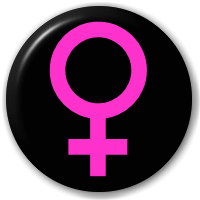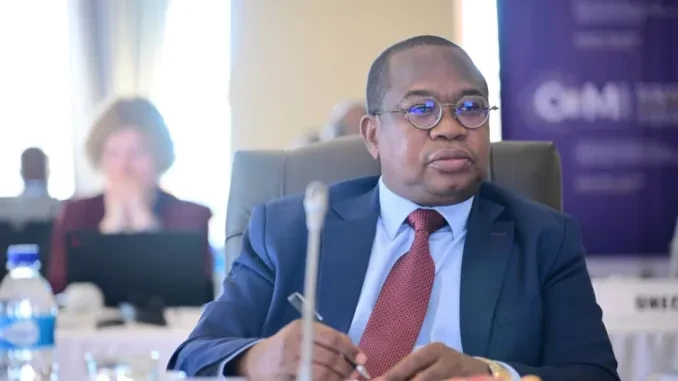
GROWING up in dusty rural Chiweshe, Gweshe, Glanis Changachirere was an ordinary village girl, waiting to be “sold” off to a husband rich enough to pay the bride price.
BY TAPIWA ZIVIRA
Although her father earned little as a manager at a church farm, he chose to squeeze his little income to send his children, including Changachirere, to school in the 1990s. Educating a girl child at that time was not a priority for many villagers, as women were deemed just fit for the kitchen and the bedroom.
Despite falling sick and having to temporarily drop out of school while in Form 3, Changachirere soldiered on and finished her A Level, but she recalled that her parents saw no value in sending her further to university. They, however, let her go.
Changachirere was forced to work during vacations to earn some extra money to supplement her fees.
The government withdrew the student loan facility, forcing Changachirere to join the students’ movement.
“For most students who came from poor backgrounds, it was so difficult to continue with school, but I was so determined to make a difference,” she said in a documentary titled Girl Child, which speaks about the lack of opportunities for rural girls.
Changachirere, however, did not end with the students’ movement.
- Chamisa under fire over US$120K donation
- Mavhunga puts DeMbare into Chibuku quarterfinals
- Pension funds bet on Cabora Bassa oilfields
- Councils defy govt fire tender directive
Keep Reading
Today she directs a young women’s empowerment organisation, the Institute for Young Women in Development (IWYD), which is currently working in Mashonaland Central province with a view to enhancing the potential of young women in their communities.
She works together with other like-minded civic society organisations and stakeholders to achieve this vision. During IYWD-organised International Women’s Day commemorations held at Madziwa last month – attended by representatives from the Gender Commission, Health and Education ministries, National Aids Council and hundreds of rural women, among many others – Changachirere said it was key to involve everyone in communities to achieve consensus on the upbringing of girls in a way that allows them to be assertive in choosing their own future goals.
“You find out that the role of the girl is often prescribed for them. But they need to be nurtured to choose the path of their own future,” Changachirere said.
IYWD works with the Organising for Zimbabwe (O4Z), a youth-led organisation that provides a capacity development forum for community organisations. O4Z identifies information dissemination as a key tool for the empowerment of women.
“One key impediment to societal development that we continue to note in our work with people in the communities, both young and old, is the issue of access to information, which fuels indifference and ignorance towards issues of development.
“Without information on a lot of things, it becomes difficult for citizens to claim their right to certain entitlements conferred on them by the Constitution,” O4Z director, Terence Chitapi said.
“As civil society organisations, there is every need, therefore, to have a nuanced way of ensuring that we are able to bridge the information gap that currently exists in the communities,” he said.
“There are numerous opportunities that have opened up with the consolidation of cyberspace as a frontier for information exchange, that has less regulation to free expression and exchange of ideas among citizens.”
O4Z last week organised a discussion, partnering with Women’s Action Group (WAG), Source International, and IYWD, among other organisations that share a similar vision of empowering women. Like Changachirere, Sally Dura – who is director of WAG and founder of the Sally Institute – spoke of how as a girl growing up in the rural areas, she had to protect herself.
“We were herding cattle and if you did not want to have your private parts touched by the boys, you would spend the day running round looking after their cattle while the boys played,” she said.
Dura said the empowerment of girls should start when they are young so that they are shaped to share responsibilities.
“We have socialised men and overburdened men to say you should provide, you are responsible, you take the risk,” she said.
Dura said if socialised properly, women would not just look up to their men, but also complement resources brought by men into the family.
Nyasha Sengayi, director of Source International, said gender parity should not be used to just refer to the number of women in top positions.
“A lot of times we are saying what are the numbers in schools, there are less girls than boys, or what are the numbers of women in company positions? But what about the woman in the rural area? Who is working in the garden, what does parity mean for her? The capacities of women often go unnoticed because people think that if they are in the informal setting, we cannot measure their contribution to the economy and the country, so sometimes we do not count them in the system when it comes to parity.”
According to a report titled Women in Informal Employment: Globalising and Organising, 74% of women in sub-Saharan Africa are in the informal sector, with 5,7 million people in Zimbabwe estimated to be in the informal sector.











